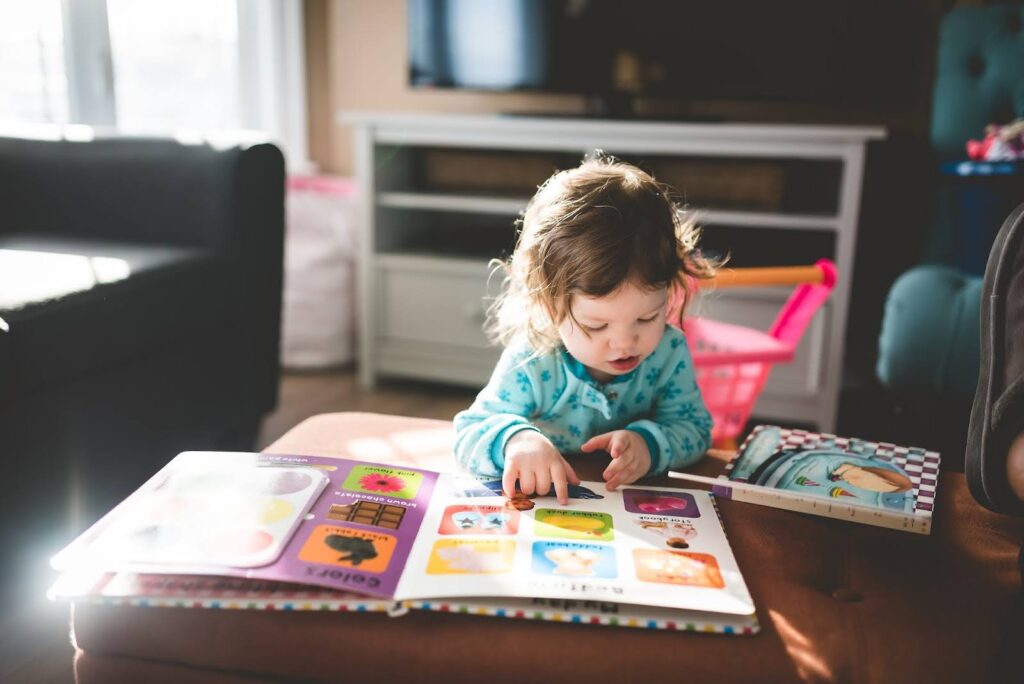In recent years, play-based learning has gained significant recognition as a powerful approach to early childhood education. Rather than focusing solely on structured lessons and rote learning, play-based learning encourages children to explore, imagine, and interact with their environment in a way that naturally nurtures their development. This method aligns with children’s natural curiosity and desire to engage with the world around them, making learning not only more effective but also more enjoyable.
If you are considering options for early education, centres like childcare Fremantle often incorporate play-based learning into their curriculum. But what exactly is play-based learning, and what makes it so beneficial? Let’s explore how this approach shapes the growth and development of young minds.
1. Nurtures Cognitive Development
Play-based learning plays a crucial role in fostering cognitive development in young children. Through activities like building blocks, role-playing, and exploring nature, children engage in problem-solving, critical thinking, and decision-making. When they construct a tower or pretend to run a shop, they are not just playing; they are learning to plan, strategise, and think ahead.
Research shows that children who engage in play-based learning tend to develop better language skills, enhanced memory, and stronger problem-solving abilities. By experimenting with different scenarios and engaging in activities that require thinking and reasoning, they are unknowingly developing essential cognitive skills that will serve them well throughout their lives.
2. Encourages Social and Emotional Development
Social and emotional development is a vital aspect of early childhood education, and play-based learning provides ample opportunities for children to interact with their peers in meaningful ways. When children engage in group play, they learn to share, negotiate, and collaborate with others. This not only helps them develop social skills but also fosters empathy and understanding.
For instance, children may participate in group activities such as building a sandcastle together or playing house in a pretend kitchen. These scenarios teach them to communicate effectively, take turns, resolve conflicts, and build friendships.

Play-based learning provides a safe environment for children to explore their emotions and learn how to express them appropriately, laying the foundation for healthy emotional development.
3. Enhances Language and Communication Skills
During play, children naturally engage in conversations with their peers, educators, and even with themselves. These interactions are crucial for developing language and communication skills. Through role-playing games and storytelling, children expand their vocabulary, improve sentence structure, and learn how to express their ideas clearly.
When a child plays the role of a teacher in a pretend classroom or talks to their teddy bear during a tea party, they are practising language in a low-pressure environment. Educators can also take advantage of playtime to introduce new words, ask open-ended questions, and encourage discussions, helping children become more articulate and confident in expressing themselves.
4. Promotes Physical Development
Play-based learning often involves activities that encourage physical movement, helping children improve their gross and fine motor skills. Running, jumping, climbing, and dancing are all forms of play that strengthen muscles, improve coordination, and build balance. Even simple activities like cutting paper, stacking blocks, or threading beads enhance fine motor skills, which are essential for writing and other precise tasks.
Physical play is not only beneficial for motor development but also promotes overall health and well-being. When children are active, they burn off energy, stay fit, and reduce the risk of developing sedentary habits. Centres that embrace play-based learning create an environment where children are free to move, explore, and develop their physical abilities in a fun and engaging way.
5. Sparks Creativity and Imagination
One of the standout benefits of play-based learning is its ability to ignite creativity and imagination. When children engage in imaginative play, they are free to explore their ideas and experiment with different scenarios without the constraints of rigid rules or expectations. This freedom allows them to think outside the box and come up with innovative solutions to challenges.
For example, a child might use a cardboard box as a spaceship, transforming their surroundings into an intergalactic adventure. This type of play not only fosters creativity but also encourages children to develop narrative thinking and storytelling skills. By giving children the freedom to explore and imagine, play-based learning nurtures their ability to dream big and think creatively.
6. Supports Independence and Decision-Making
Play-based learning allows children to take charge of their learning experiences, promoting independence and self-directed decision-making. When children are given the freedom to choose their activities and create their own play scenarios, they learn to make decisions, set goals, and take responsibility for their actions.
This sense of autonomy is crucial for building confidence and self-esteem. When a child successfully completes a puzzle or builds a structure with blocks, they experience a sense of achievement and pride in their abilities. Educators encourage this independence by providing a variety of play options and supporting children’s choices, helping them develop a positive self-image and a sense of ownership over their learning.
7. Facilitates Holistic Learning
Play-based learning is an approach that embraces the holistic development of a child, addressing their physical, cognitive, social, and emotional needs simultaneously. Unlike traditional teaching methods that often compartmentalise learning into distinct subjects, play-based learning recognises that children learn best when their experiences are interconnected and meaningful.

For example, a child engaged in a gardening activity is not just learning about plants; they are also developing fine motor skills, enhancing their vocabulary, and working cooperatively with others. This holistic approach ensures that all areas of a child’s development are nurtured, creating a well-rounded foundation for future learning.
8. Builds Resilience and Problem-Solving Skills
Play-based learning often involves challenges and obstacles that children must navigate, whether it’s figuring out how to balance blocks in a tower or resolving a disagreement with a playmate. These experiences teach children how to approach problems with a positive mindset and find solutions independently.
By encountering and overcoming challenges during play, children build resilience and learn that it’s okay to make mistakes. This ability to bounce back from setbacks is an essential life skill that will serve them well in their academic journey and beyond. Play-based learning creates a supportive environment where children can experiment, take risks, and develop the perseverance needed to face new challenges.
9. Creates a Love for Learning
Perhaps one of the most valuable benefits of play-based learning is that it fosters a genuine love for learning. When children associate learning with joy, curiosity, and exploration, they are more likely to approach new experiences with enthusiasm and an open mind. This positive attitude towards learning can set the stage for academic success and a lifelong passion for discovery.
Centres that embrace play-based learning create a welcoming and stimulating environment where children feel encouraged to explore their interests and pursue new knowledge. By making learning enjoyable and engaging, play-based education helps children develop a lifelong appreciation for education.
Play-based learning offers a wide range of benefits that contribute to a child’s cognitive, social, emotional, and physical development. It encourages creativity, nurtures independence, and supports holistic learning in a way that traditional teaching methods often cannot achieve. By embracing play-based learning, early education centres can provide a solid foundation for lifelong learning and personal growth.
Remember, play is not just a break from learning—it is the very essence of how children learn, grow, and thrive. By giving children the freedom to explore, imagine, and create through play, we are setting them on a path towards a brighter, more confident future.



